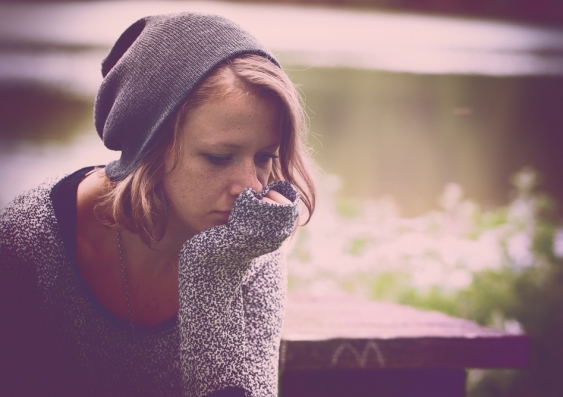Young Australians and COVID-19: more depression and anxiety, but less alcohol-related harm
A new report reveals how COVID-19 affected young Australians during the pandemic restrictions last year.
A new report reveals how COVID-19 affected young Australians during the pandemic restrictions last year.

Young Australians experienced an increase in depression and anxiety during COVID-19 restrictions in 2020 but consumed less alcohol, a new report by the National Drug and Alcohol Research Centre (NDARC) at UNSW Sydney says.
Concerningly, their increased mental health issues weren't offset by greater help-seeking from mental health professionals.
The researchers used survey data from 1927 young people – with a median age of 22 – as part of the Australian Parental Supply of Alcohol Longitudinal Study (APSALS) cohort. They found half the cohort rated their mental health as having worsened in May-June 2020, when compared to August 2019 – March 2020.
“Young people may disproportionately experience certain stressors associated with the pandemic, such as reduced casual working hours and disruption to other structured activities like tertiary education,” says Ms Emily Upton, Research Officer at NDARC and Clinical Psychologist.
The report found that despite the surge in generalised anxiety and depression, there was no increased uptake of young people seeking out mental health support from health professionals.
“Young people generally have low engagement with mental health treatment and rely more on self-reliance strategies to cope with mental health problems,” says Ms Upton.
The report found that although the Australian government introduced initiatives to increase access to mental health support during the pandemic, there may be a lag in young Australians accessing this support.
“Cost is a key barrier to treatment access for young people. Reduction in income during the pandemic may be a factor in continued low rates of help-seeking and while government rebates are available, these do not cover the entire cost of psychological treatment,” says Ms Upton.
In another report using the same APSALS survey data, the researchers found alcohol use among young people during the COVID-19 pandemic decreased.
Dr Philip Clare, Biostatistician at The Prevention Research Collaboration, University of Sydney, says overall alcohol consumption among young people during the restrictions in May and June 2020 declined. “It went down by 17 per cent compared to February 2020, and there was a 34 per cent decline in the rate of alcohol-related harms.”
The report found that changes in consumption appear to be driven by the COVID-19 restrictions.
“Young people generally consume more alcohol outside of the home, so we would expect alcohol consumption to decline during COVID-19 restrictions. However, we saw an increase in drinking alone and drinking ‘virtually’ with others,” says Dr Clare.
“Similarly, the decline in alcohol-related harms may be driven by the fact that drinking was more likely to occur alone or ‘virtually’ with others due to the need to isolate, which reduces the risk of harms such as fighting with strangers, and traffic accidents.”
The report stresses that alcohol-related trends in young people are also important to understand so the relevant harm reduction strategies can be implemented.
“Although drinking and harms decreased, we could see an increase in future due to loss in tolerance,” said Dr Clare.
Read Ms Emily Upton’s APSALS report.
Read Dr Philip Clare’s APSALS report.
People can access free and confidential advice about alcohol and other drugs by calling the National Alcohol and Other Drug Hotline – 1800 250 015.